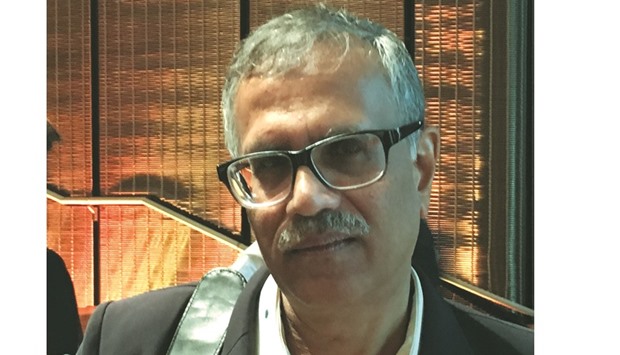Qatar has played a significant role on the world platform in its contribution to creating greater awareness on autism. In 2007 HH Sheikha Moza bint Nasser, in her capacity as Qatar’s representative to the United Nations, successfully proposed a UN General Assembly resolution, creating a World Autism Awareness Day. As a result on April 2 every year, all member states are encouraged to take measures to raise awareness on autism spectrum disorders (ASD) across the globe. This year, on April 2, the General Assembly emphasised children and adults with ASD and other neurodevelopment disorders need to have a special place at the heart of the UN Sustainable Agenda and in the implementation of the Sustainable Development Goals.
In keeping with the high priority placed on mental health both globally and nationally, the World Innovation Summit for Health (WISH), an initiative of Qatar Foundation, assigned a separate forum for autism at the recent WISH 2016 summit.
Unfortunately there is yet no cure for autism. The hallmark feature of ASD is impaired social interaction. As a result, one of the most vulnerable of student populations are children suffering from autism. Misunderstood and often perceived as socially awkward, they are subject to bullying and isolation, as they struggle to communicate and interact with their peers. Regrettably, nearly 70% of children with autism spectrum disorders experience emotional trauma as a result of being bullied.
Educating the public – both adults and children, on autism and the need for tolerance and understanding is crucial in helping the unfortunate and innocent victims of ASD.
It is also important to understand that identifying children at risk of autism early can be a life-changer; this calls for increased public awareness and early detection.
In an exclusive interview with Gulf Times, a delegate of WISH 2016 - Dr Satish C Girimaji, Professor, Dept of Child & Adolescent Psychiatry, NIMHANS, India, spoke on early signs and symptoms of autism and the importance of early intervention. An acclaimed expert in his area, Dr Girimaji’s work includes providing clinical service, as well as clinical and academic teaching in the area of child & adolescent psychiatry, and research.
How early can autism be detected in children. What are the early signs and symptoms?
Autism is a neurodevelopmental disorder whose features become manifest before 3 years in almost all children. However, its features can be recognised in most children around the age of 1.5 to 2 years. These early signs and symptoms primarily include impairments in the development of social interactions and meaningful communications.
Typical examples of these impairments are:
— poor eye-to-eye contact
— inability to respond to their names
— poor social imitation (unable to learn to wave bye-bye and inability to imitate an action)
— being solitary and uninterested in people
— may not point to subjects (such as pointing to body parts)
— delayed speech and not using speech for communication
— lack of joint attention and sharing of interests
— restricted and repetitive patterns of behaviour.
In short, these children have difficulty in understanding and responding to social cues and initiating social interactions, both verbal and non-verbal.
Why is early intervention important?
Early recognition and intervention is crucial. Parents know their child best and when they notice that their child is showing signs of developmental delay or any of the features mentioned above, they must consult their doctor and ask for evaluation and advice. Once it is clear that child is having some autistic features, it is essential to not lose time with a “wait and watch” approach, but to start intervention immediately. Home-based, parent-mediated, early intervention has been shown to improve symptoms of autism. These interventions include systematic teaching of social and communicative skills. Children can be taught simple social skills that can make a huge difference. They can learn to follow simple commands and actions such as: come, go, take, give, show, point, look at me, imitate and pretend. Also, through early intervention, teaching self-help skills such as: brushing, eating self, bathing, and toiletry, can be taught. The importance of providing appropriate education and speech therapy are also vital.
Why is it important to have an inclusive approach to autism where both - people with autism as well as their family are supported?
Individuals with autism and their families face enormous stresses and challenges, often for the whole life span of the affected individual. In my experience I often see families running from pillar to post to get meaningful information, advice and appropriate services. Therefore, providing support as well as adequate, affordable and accessible services becomes the responsibility of governments. This can be brought about by combined and concerted action of politicians, policy makers, public servants, professionals, public at large and parents themselves. Systems of support that are responsive to the needs of individual with autism, and their families that encompass health, education, training, and social welfare measures have to be built in a seamless and integrated manner.

Dr Satish C Girimaji, Professor, Dept of Child & Adolescent Psychiatry, NIMHANS, India
